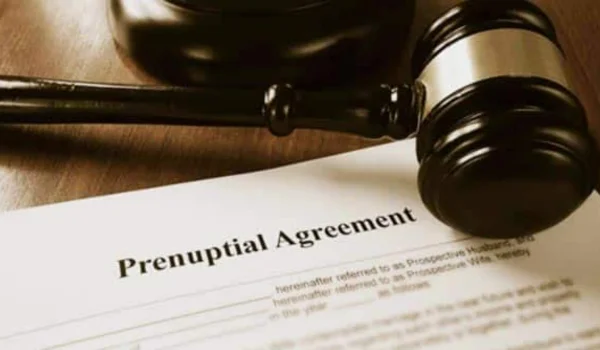Starting and running a business in the UK involves more than just a great idea; it requires careful attention to legal obligations that protect both your business and your clients.
From choosing the right business structure and registering with the appropriate authorities, to safeguarding intellectual property, managing data, and ensuring compliance with employment law, every decision can have long-term consequences.
Understanding these essentials and getting good business legal advice helps companies reduce risk, avoid penalties, and build a strong foundation for sustainable growth.
Choosing the Right Business Structure

Choosing the right business structure is one of the first and most important decisions for any UK business owner.
Your choice affects:
- How much you pay in taxes,
- Your personal liability,
- The paperwork required (and it can be intensive!),
- And how your business is perceived by clients and partners.
The most common structures in the UK include sole trader, partnership, and limited company, each with advantages and potential disadvantages (depending on how you look at it).
A sole trader is the simplest structure to set up and manage, offering full control over decision-making. However, you’re personally liable for any debts or legal issues that arise.
Partnerships allow multiple people to share ownership, responsibilities, and profits, but partners are typically jointly liable for the business’s obligations. A limited company (Ltd) provides limited liability, separating your personal assets from the business, which can offer added protection and credibility, though it comes with more regulatory and reporting requirements.
Different business structures can affect how easily you manage the legal and operational requirements needed to implement customer experience strategies, such as subscription services, live chat, or personalized offerings.
When deciding on a business structure, consider factors such as your (1) financial goals, (2) risk tolerance, (3) potential for growth, and (4) long-term plans.
It can also be helpful to consult with a lawyer to ensure you choose the structure that best aligns with your business needs, protects your interests, and supports future expansion. Business owners who seek legal advice start on the right footing.
A Quick Step by Step: How to Register Your Business in the UK
- Choose Your Business Structure Decide whether you’ll operate as a sole trader, partnership, or limited company.
- Select a Business Name heck that your name is unique and complies with Companies House rules if registering a limited company. Avoid names that are too similar to existing businesses.
- Register with the Relevant Authority
- Obtain Necessary Licences or Permits Check if your industry requires additional permissions and apply before trading.
- Set Up Record-Keeping & Compliance Systems Keep accurate financial records, file annual accounts on time, and maintain up-to-date registration details.
- Confirm Insurance Requirements Depending on your business type, consider public liability, employers’ liability, professional indemnity, or property insurance.
- Review and Monitor Ongoing Compliance Regularly check registration, licences, tax filings, and any changes to regulations to avoid penalties.
Business Registration and Compliance
After deciding on a business structure, the next step is to ensure your business is properly registered and meets all legal compliance requirements.
In the UK, the registration process depends on your location and business type. For example, limited companies across the UK must register with Companies House, but the procedures and offices differ slightly for England, Wales, Scotland, and Northern Ireland. Sole traders and partnerships typically register with HM Revenue & Customs (HMRC) for tax purposes rather than Companies House.
Certain industries may require additional licenses or permits, such as hospitality, finance, or healthcare, depending on local regulations. Compliance also includes ongoing responsibilities such as:
- Filing annual accounts,
- Submitting tax returns on time,
- And maintaining accurate business records.
Being thorough in registration and compliance protects your business from legal penalties and helps establish credibility with clients, suppliers, and partners.
For example:
In R v Royal Borough of Kensington and Chelsea, ex p. O’Connor (1996) a business that began trading without obtaining the required licences. The court made it clear that ignorance of registration or licensing requirements is not a defence; the company faced legal action and penalties for non-compliance.
Contracts and Agreements
“A clear, well-drafted contract is your first line of defence against disputes. It ensures both parties understand their responsibilities and reduces risk,” explains Deborah Carmichael, Partner at Jones Whyte Solicitors.
Contracts are the foundation of any business relationship and play a crucial role in protecting your interests. In the UK, a contract can be written, verbal, or even implied by conduct, but having clear written agreements is always recommended to reduce the risk of disputes.
Contracts are needed in a variety of situations, including agreements with clients, suppliers, partners, and employees.
Key contracts every UK business owner should consider include client or service agreements, which define deliverables, payment terms, and responsibilities; supplier contracts, which protect your business when purchasing goods or services; and employment contracts, which clarify roles, expectations, and termination procedures for staff.
For businesses with multiple owners, a shareholder or partnership agreement can prevent conflicts by clearly outlining ownership, decision-making, and profit-sharing arrangements.
Investing time in drafting well-structured contracts not only helps prevent disputes but also strengthens business relationships. Consulting a solicitor can ensure your agreements include the necessary protections and comply with UK law. For example, businesses may want to clarify responsibilities related to workplace health and safety or potential personal injury claims.
Intellectual Property (IP) Protection

“IP isn’t just a legal formality; it’s a business asset. Protecting your ideas and brand from the outset can save significant cost and stress later,” notes Deborah Carmichael, Partner at Jones Whyte Solicitors.
Intellectual property (IP) is one of the most valuable assets for any business. Protecting your ideas, designs, brand, and creative work ensures that others cannot use them without permission and helps maintain your competitive advantage. In the UK, IP can include trademarks, patents, copyrights, and designs, each covering different types of business assets. Trademarks, patents, and designs can be registered with the UK Intellectual Property Office (UK IPO).
A trademark protects your brand, including business names, logos, and slogans, while a patent safeguards inventions or unique processes.
Copyright automatically protects original works such as written content, graphics, and software, whereas a registered design protects the appearance of products. Choosing the right form of protection depends on the type of asset and how you plan to use it in your business.
The best business legal advice? Protect what’s yours. Failing to protect IP can lead to disputes, lost revenue, or damage to your brand reputation. Beyond registered IP, businesses should also safeguard trade secrets; confidential information such as processes, client lists, or marketing strategies – using confidentiality agreements and careful internal handling.
Data Protection and GDPR Compliance
Data protection is a key legal responsibility for all UK businesses. The UK GDPR and the Data Protection Act 2018 set out rules on how personal data must be collected, stored, and used.
Compliance is essential to protect customer information, avoid legal penalties, and maintain trust with clients and partners.
Businesses must ensure they have clear privacy policies, obtain consent where required, and implement appropriate security measures to safeguard data. They should also be prepared to respond to subject access requests and handle data breaches in line with regulatory requirements.
While the UK GDPR applies across England, Wales, Scotland, and Northern Ireland, there can be minor differences in guidance issued by local authorities. For example, businesses in Northern Ireland must also consider how cross-border data flows with the EU are handled post-Brexit.
Regardless of location, all UK businesses are accountable to the Information Commissioner’s Office (ICO) for compliance and enforcement.
Employment Law Essentials
Understanding employment law is crucial for any UK business that hires staff. Employment law sets out the rights and responsibilities of both employers and employees, covering areas such as contracts, pay, working hours, holiday entitlement, and workplace safety. Complying with these regulations helps protect your business from disputes, fines, and reputational damage.
Key considerations include:
Employment contracts: Clearly outline roles, responsibilities, and terms of employment. · Pay and benefits: Comply with the National Minimum and Living Wage requirements.
· Working hours and leave: Ensure compliance with regulations on maximum working hours, holiday entitlement, maternity/paternity leave, and sick leave. Employees in the UK are generally entitled to a maximum average of 48 working hours per week, at least 11 hours of daily rest, 20-minute breaks during shifts over six hours, 28 days of paid annual leave (including public holidays, which vary slightly by country), and statutory maternity, paternity, adoption, shared parental, and sick leave, with minor procedural differences in Northern Ireland. · Health and safety: Maintain a safe working environment in line with Health and Safety Executive (HSE) guidelines.
· Employee rights: Be aware of anti-discrimination, redundancy, and unfair dismissal laws.
Employment law rules are largely UK-wide, but there are some variations between England, Wales, Scotland, and Northern Ireland, particularly in areas like tribunal processes or parental leave policies.
It’s also essential to remember that employment law doesn’t end once a contract is signed. Employers must continue to uphold agreed terms unless both sides consent to changes.
A leading case, Rigby v Ferodo Ltd (1988), shows the risk of cutting corners: here, an employer reduced wages without the employee’s agreement. The worker continued in the role but successfully claimed for the shortfall, proving that continuing to work does not equal acceptance of a unilateral pay cut.
Risk Management and Insurance
Every business faces potential risks, from property damage and cyber threats to legal claims and workplace accidents. Effective risk management helps identify, assess, and mitigate these risks, reducing the likelihood of financial loss and operational disruption.
Insurance is a key component of risk management in the UK. Common policies include:
- Public liability insurance: Protects against claims from third parties for injury or property damage.
- Employers’ liability insurance: Legally required for businesses with employees; covers claims from workplace injuries or illnesses.
- Professional indemnity insurance: Covers legal costs and damages if a client claims your advice or services caused them a loss.
- Property insurance: Protects business premises, equipment, and stock against fire, theft, or accidental damage.
Confidence Through Compliance
Navigating the legal landscape is an ongoing part of running a successful business in the UK.
By making informed choices about your business structure, staying compliant with registration and reporting requirements, drafting clear contracts, protecting intellectual property, adhering to data protection rules, respecting employment law, and implementing effective risk management and insurance strategies, you can operate with confidence.
Staying proactive and seeking professional advice when needed ensures your business is not only legally compliant but also positioned for long-term success.
Author Bio:

Joshua Julien Brouard works in the marketing department at Jones Whyte Solicitors, enhancing online visibility for key services. He holds a BCom in Law and a Postgraduate Diploma in Marketing Management, combining legal knowledge with digital marketing expertise. Joshua holds multiple professional certifications and enjoys solving complex challenges that require strategic thinking and attention to detail.





